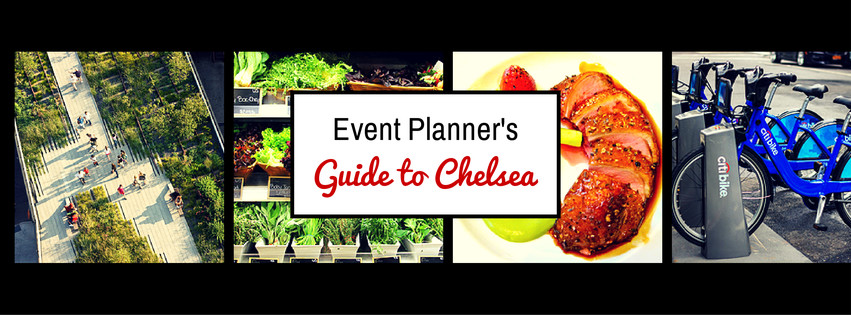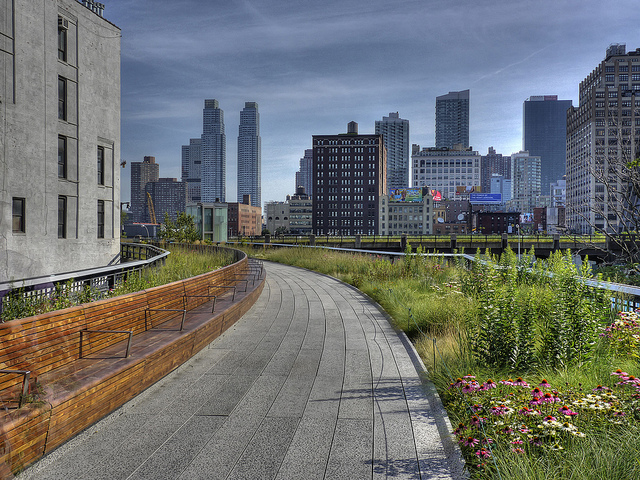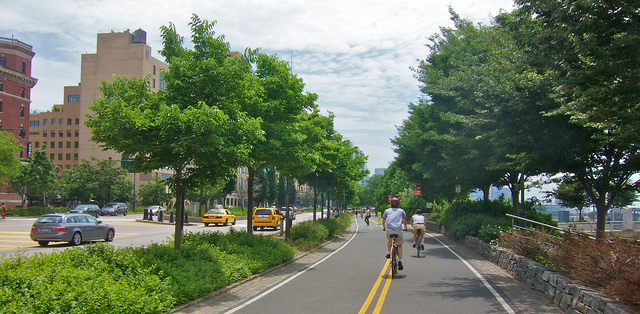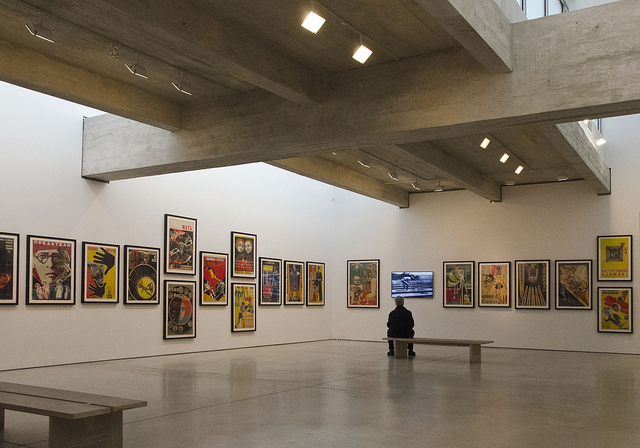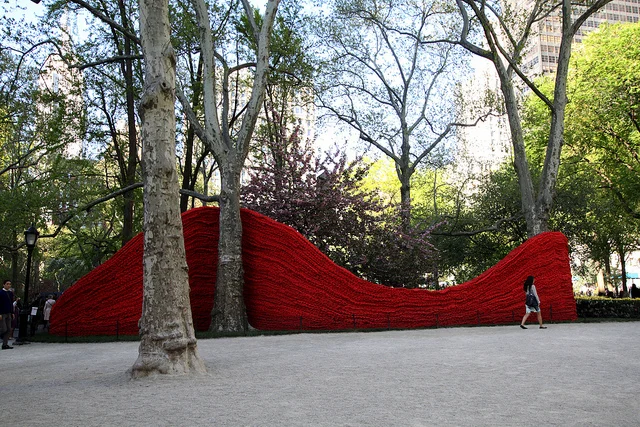While most of the time you spend planning an event will be about the decor, agenda, and time at the venue, guests may choose to explore the area around the venue before, during or even after the event is complete. Depending on the event length and goals, your guests may appreciate a list of Chelsea activities to do nearby the venue. This can be especially helpful if there is time to network directly after an event or on the night or morning during a multi-day affair.
For the event planner looking to provide guests with a little bit of local flavor, we've created a list of things to do for four distinct attendees. The list includes only activities that are all within a one to ten-minute walk from the HELEN MILLS Event Space & Theater. Let us know if we've missed any of your favorite activities, restaurants, or bars in the comments section. As a tip: this list will work well for events planned in the Meatpacking District, Chelsea, Flatiron or Midtown. Enjoy!
Foodie Guest
Chelsea is home to a number of new restaurants as well as some old classics. Our list includes everything from delicious cafeteria-style barbecue to the #4 ranked restaurant...in the world.
1. Stroll through Eataly, Mario Batali's food emporium which is meant to feel like a genuine Italian market with places to shop for fine cheeses and charcuterie, drink wine, or have a delicious meal at one of their seven sit-down restaurants.
2. Splurge on the 11-course, 5 hour tasting menu at the #4 restaurant in the world, Eleven Madison Park. The food is immaculately prepared, presented, and served in a beautiful art deco building located on Madison Square Park.
3. Drink a finely crafted cocktail or choose from a literal wall of whiskeys at Maysville. There is also delicious smoked & charred food and raw & chilled seafood for your enjoyment, all served in a thoroughly modern, granite-accented setting.
4. Go casual with some delicious (and refreshingly fun and informal) barbecue at Hill Country Barbecue Market. There is an array of cuts of meat as well as delicious sides to choose from, all served on simple brown butcher paper.
Adventure Seeker
Believe it or not, there's a lot of flora and fauna even in the heart of Manhattan. The following are a few activities for the adventure seeker or outdoors-inclined attendee, with plenty of activities that allow for stretching your legs post-event while exploring some more off-the beaten path locales.
1. Built along 1-mile of a former elevated railroad, the Highlineis an oasis that weaves through buildings, murals, and above bustling streets. Keep an eye for the rotating art installations and beautiful landscaping that changes with the seasons as you walk. Tours are available through various organizations, including Friends of the Highline.
2. Walk or bike along the 32-mile-long Hudson River Greenway, surrounded by trees, landscaping, art and of course the river. Most parts of this pathway are on the same level as the water, which allows for a great escape from the density of New York City's streets.
3. Check out a sporting event at the famous Madison Square Garden. The iconic Garden is home to not only basketball and hockey, but also to various concerts featuring high-profile artists as well as the unexpected annual Westminster Kennel Club Dog Show and Professional Bull Riding event.
4. Have a burger and beer on The Frying Pan, a bar and grill located on a historic lightship. As expected, the location offers fantastic views of the Hudson.
Art Lover
Chelsea has a well-deserved reputation for its world class art galleries and fashion-forward denizens. The neighborhood is a haven for anyone with sophisticated tastes or simply a love for creativity and art.
1. Peruse the Chelsea Galleries. From paintings to photographs to installations, the galleries have it all. Make sure to check the times and locations on the easy to use chelseagallerymap.com.
2. The Highline makes for a great walk and features a number of art-installations that change every so often. As you're walking, make sure to look to your left, right, up, and down for both public and private murals and street-art. There are a few iconic ones, but many of them don't last for very long (including the one below).
3. Grab an inspired cocktail at the beautiful garden-in-the-sky rooftop bar and restaurant, Gallow Green. The location is extra-special due to its location above the McKittrick Hotel, home of the interactive and immersive play Sleep No More.
4. Never had a Shake Shack burger? The Shake Shack location in Madison Square park not only features delicious comfort food, but is also surrounded by ever-changing public art installations as well as some gorgeous, historic buildings.
Convenience Seeker
This list includes activities within four blocks of HELEN MILLS for the guest who wants to experience great things...very close by. From music, to great food, to art, to a low-key evening. We've got you covered.
1. Play a vintage arcade game and enjoy one of the 24 beers on-tap at Barcade. The bar also features delicious pub food as well to round out the unusual (but winning) combination.
2. See live country music and eat great barbecue at Hill Country Barbecue Market. A fun and unexpected way to spend an evening in the heart of Manhattan
3. Take a stroll through Madison Square Park. The park is home to the much-loved Shake Shack, a number of outdoor art installations, a gorgeous fountain and a bustling dog park.
4. For a relaxing evening stroll, check out the iconic and intriguing Flatiron Building. If you look closely, you'll notice the ornate facade, complete with Medusa heads and terra cotta flowers.






